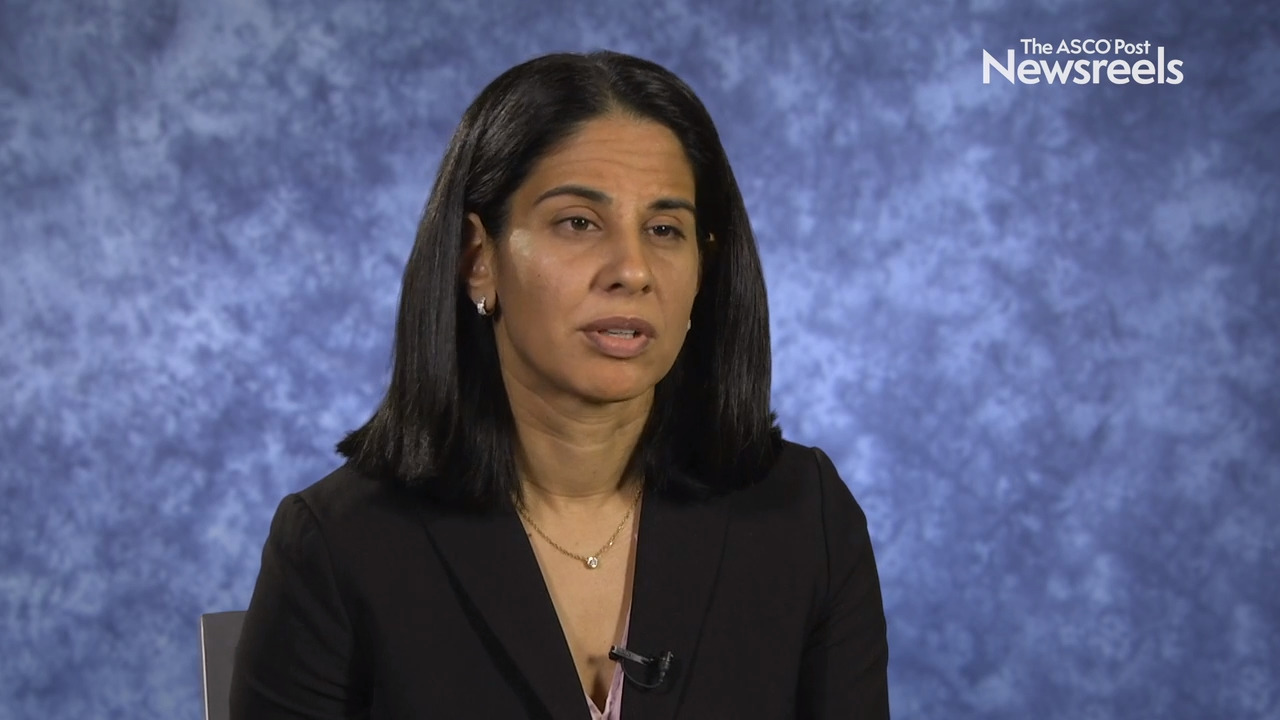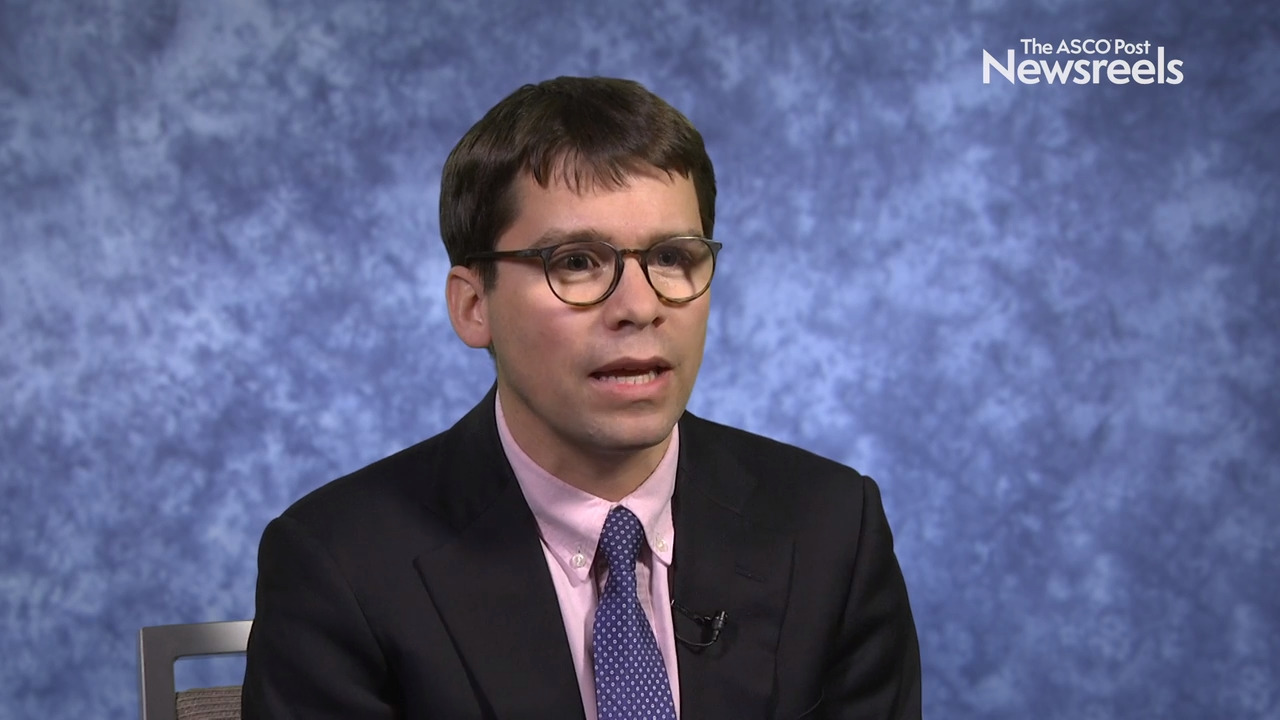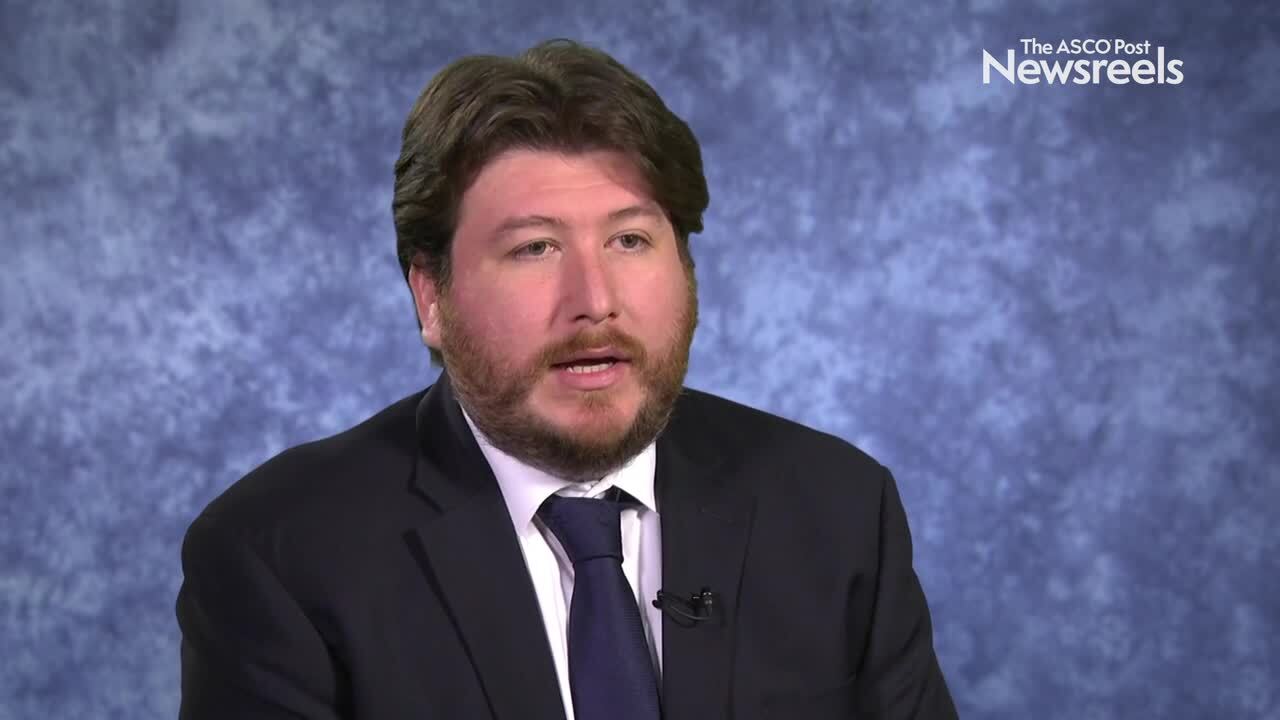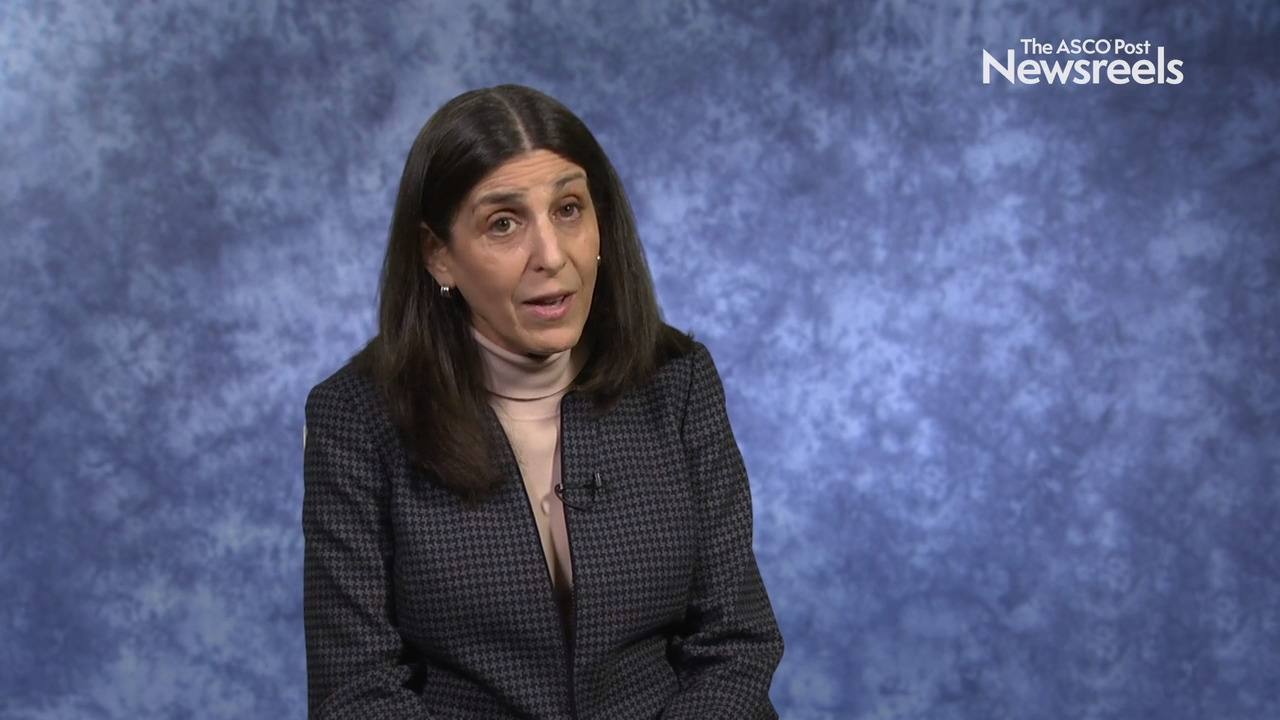Ian E. Krop, MD, PhD, on Trastuzumab Deruxtecan for Patients With Previously Treated, HER2-Positive Metastatic Breast Cancer
2019 San Antonio Breast Cancer Symposium
Ian E. Krop, MD, PhD, of Dana-Farber Cancer Institute, discusses phase II trial findings on trastuzumab deruxtecan, a HER2-targeting antibody-drug conjugate, in patients with HER2-positive metastatic breast cancer who were previously treated with trastuzumab emtansine (Abstract GS1-03).
Jack Cuzick, PhD, of Queen Mary University of London, discusses the substantially greater benefits of anastrozole as compared with tamoxifen in terms of preventing breast cancer, with no increase in fractures or other reported serious side effects (Abstract GS4-04).
Sara M. Tolaney, MD, MPH, of Dana-Farber Cancer Institute, discusses phase II findings on patients receiving T-DM1 monotherapy as adjuvant treatment for stage I HER2-positive breast cancer, a regimen associated with few recurrences in the study population (Abstract GS1-05).
Joerg Heil, MD, PhD, of the University Hospital Heidelberg, discusses findings on how accurately this technique can diagnose residual disease and pathologic complete response after neoadjuvant chemotherapy in patients with breast cancer. These data may help tailor, de-escalate, and potentially avoid unnecessary surgeries (Abstract GS5-03).
Gerardo Antonio Umanzor Funez, MD, of Liga Contra El Cáncer, discusses phase III findings on intravenous (IV) paclitaxel and oral paclitaxel plus encequidar (a novel P-gp inhibitor), the first orally administered taxane regimen shown to be superior to the IV formulation in terms of response and survival with less neuropathy (Abstract GS6-01).
Nadine M. Tung, MD, of Beth Israel Deaconess Medical Center, discusses cisplatin vs doxorubicin/cyclophosphamide (AC) as neoadjuvant treatment in BRCA-mutation carriers with HER2-negative breast cancer. Although cisplatin as a single agent shows activity in this setting, the pathologic complete response with this agent alone is not higher than that with standard AC chemotherapy (Abstract GS6-03).





